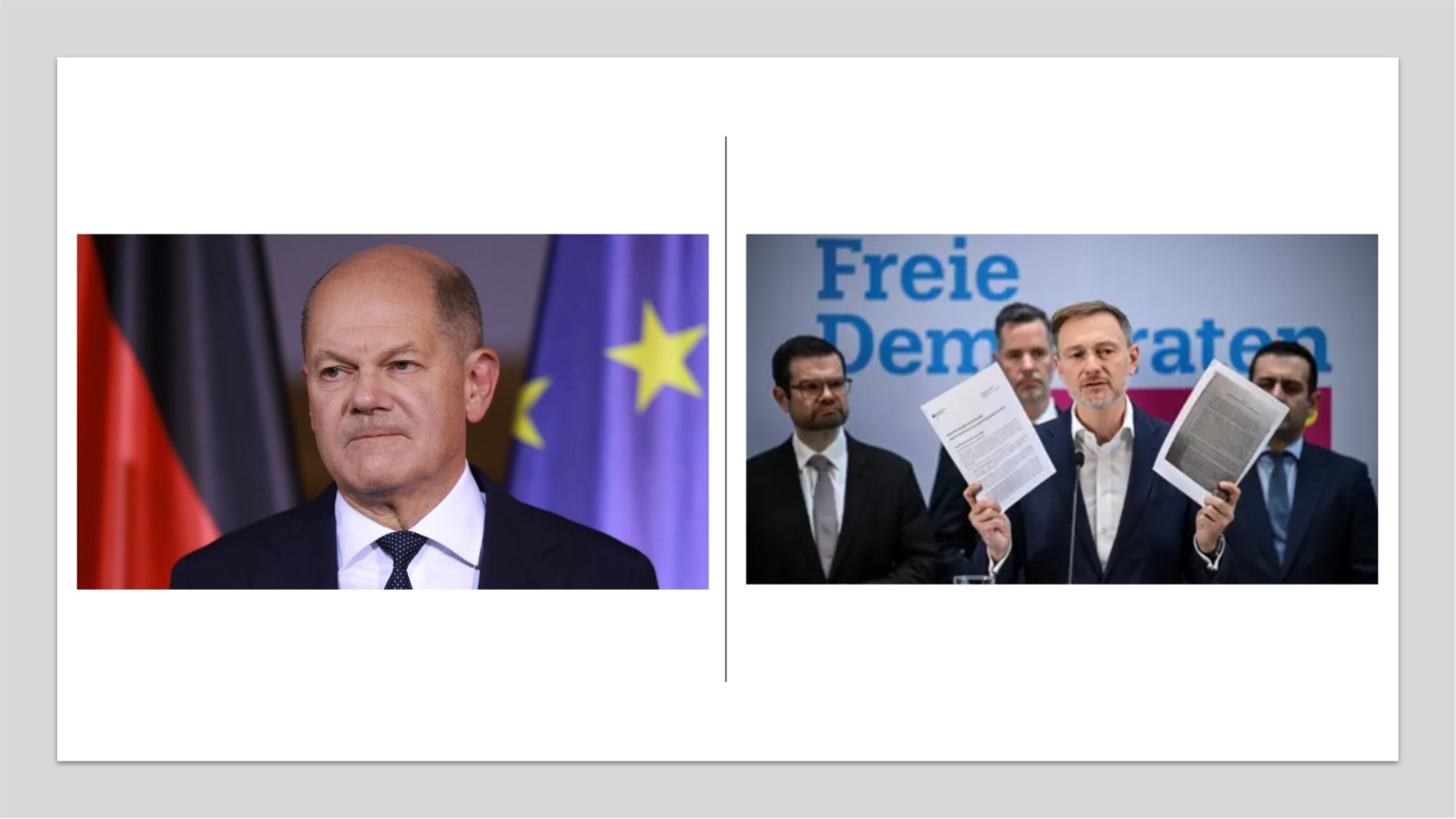On 06 Nov 2024, Germany’s ruling coalition (comprising the Social Democrats, the Greens and the Free Democrats) led by Chancellor Olaf Scholz collapsed when he fired his Finance Minister and Free Democrat leader Christian Lindner, causing political upheaval in the Europe’s largest economy. This comes at a time when Europe is already grappling with much geo-strategic uncertainty with Russians making gains on the battlefield in Ukraine (Germany is the largest European contributor to Ukraine) and the world is getting ready for Trump 2.0.
As per media reports, the firing of the finance minister followed major disagreements over how to bridge the €10-billion deficit in next year’s federal budget. Social Democrat Chancellor Scholz favoured more debt to boost spending on infrastructure, defense and support to Ukraine, while Free Democrat leader and Finance Minister Lindner opposed new borrowing, preferring cuts in tax and spending as well as reduced financial support for Ukraine. Germany has strict constitutional limits on public debt and low debt-to-GDP ratio compared to most major economies.
Russia’s invasion of Ukraine upended the fundamental security and energy architecture of Europe. Germany has witnessed high energy prices, a stagnant economy and disagreements among coalition partners. A recent poll found less than one-in-seven voters satisfied with the government and >50% preferring early elections.
What To Expect?
There could be a vote of confidence, followed by an early poll in Feb 2025 (months ahead of schedule) to elect a new government. Until then, Chancellor Sholz and the Green Party could remain in a minority government; they will have to secure support from the opposition parties on a case-by-case basis to get laws. including the 2025 compromise budget, passed. If budget is not passed by the year-end, Germany could have “provisional budget management” – no new programs, limited government operations and provisional funding for 2025 based on this year’s numbers.
With three months to go for a likely election, the opposition CDU/Christian Social Union centre-right Alliance leads opinion polls followed by far-right Alternative for Germany at around 17% (not a favoured coalition partner for most of the parties), Scholz’s SPD at 16%, the environmentalist Green Party at 11%, the left-wing, pro-Russian, anti-immigration Sahra Wagenknecht Alliance at 6% and Free Democrats even below the minimum 5% threshold needed to qualify to enter Bundestag.
As per GZERO World, if nothing major changes (three months is a long time in politics), CDU’s Merz could emerge as the new German Chancellor, leading a grand coalition of the CDU/CSU and the SPD or another three-way coalition including the Greens, and FDP (if it secures > 5% votes). Germany’s complex political system, designed to avoid excessive concentration of power, has a history of stable grand coalitions, which have delivered growth with stability. Three-party coalitions have often been unstable. The rise of rise of left-wing and far-right parties has complicated the fragmented political landscape.
According to Ian Bremmer, the next German Chancellor will inherit a struggling economy with structural challenges and facing geopolitical headwinds – unstable security environment, question mark over America’s continued commitment to Europe, dwindling demography, low productivity, rising labor costs, falling investments, high energy costs, trade protectionism undermining its export-led growth, and geo-economic competition from a rising China.
Unfolding events in Germany will be watched closely and have implications for the Eurozone.
Disclaimer: The article has reference to open sources including newspapers, and GZERO Daily by Ian Bremmer and inputs from experts including Sushil Pradhan.
MitKat will continue to monitor the geopolitical events in Europe and its implications for businesses across the world.






